What Coke Studio means to Rohail Hyatt
An insightful session at the Music Mela Conference with musicians who made a difference.
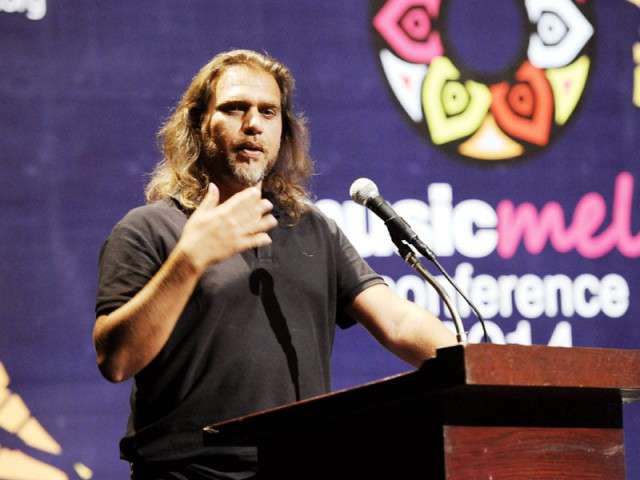
Hyatt took a complete turn after his Vital Signs days, where he went through a one-year transformation and became isolated. PHOTO: PUBLICITY
In a session at the Music Mela Conference on May 3, Rohail Hyatt spoke about the genesis of Coke Studio, a corporate-sponsored music project that catapulted into global success over the years.
So how did it come to be? “Strangely, it was post 9/11, when I heard the rhetoric ‘are you with us or against us’ and found myself in a very strange place,” said Hyatt. This dilemma prompted Hyatt to do some soul-searching and figuring out what being a Pakistani meant to him. In the process of self-discovery, he was inspired to garner the centuries-old wisdom of traditional maestros.
There’s a reason he put Arif Lohar and Meesha Shafi together. “The chimta-toting Lohar brought that wisdom and knowledge of his ancestors of turning around the metal, which has traditionally been used as a weapon, into an instrument to spread love,” he pointed out.
However, it took Hyatt a year or two to sell the out-of-the-box idea to the Coke management, who were more inclined towards established musicians like Atif Aslam and Ali Zafar to match their profile.
Finally, and through much deliberation, Hyatt was able to convince them on what seems like a brilliant idea in hindsight. “I was trying to sneak it through the back door,” he said, referring to the idea that he believed in. He worked through it swiftly, which is why the first season has few fusion songs.

Speaking about what the project taught him, he said it has been an enlightening experience because of the people he met and the knowledge that he has acquired in terms of what the society on a whole wants to listen to.
He zeroed in on a mid-life crisis and took a complete turn after his Vital Signs days, where he went through a one-year transformation and became isolated. “When people were inquisitive, I’d tell them it is the best time of my life, I’m discovering myself, I’m centered and seeking peace.” “To the outside world, I looked like I was on drugs,” he added.
Coke Studio also ended up becoming a micro and macro study Pakistani society, ie; what are they thinking, what are they saying and what are their experiences?
When asked if there was a set criterion to enter the programme, Hyatt said they ensured that the person is not exactly an established musician who has released an album, but it varies from one musician to the next. He, however, has had to deal with criticism for not featuring traditional voices. He said one music show can’t cater to the whole country, which is why newer platforms are emerging.
Arieb Azhar, who featured in seasons two and three of the show, commended Hyatt’s professional discipline, saying that from the first call, all of his (Azhar’s) energies were spent in his own creation.
“Everything worked like clockwork, which I know from my own experience is so difficult to organise in the country. Everything was flawless,” said Azhar, who a part of the session..
However, Azhar enquired about why the live audience from the first few scenes was toned down to the extent that the show featured people from different parts of the world who weren’t even in the same space. To this, Hyatt replied that he is still overlooking the programme in altered capacity and they were working on bringing it back.
The corporate sponsorship, he said, is pretty straightforward - they will invest where there is a return.
“The core value of Coke Studio is fairly simple; no one should suffer any loss because of this venture and it helps that we don’t need the audience’s money,” Hyatt added.
The audience at the conference, that also comprised musicians such as Aaron Haroon Rashid and the Bakshi family, commended the vision that shaped up the show, encompassing musicians from diverse backgrounds and at differet stages of their musical career.

Mekaal’s tutorial
Cramped in a classroom of sorts with abysmal air-conditioning, music buffs listened intently as Mekaal Hassan strummed at ear-splitting volume during his workshop at the Music Mela Conference.
Some of them had even brought along guitars to learn some hands-on skills through a practice session with the acclaimed musician in tow. Meanwhile, the uninitiated watched in silent awe, trying to grasp some tips to unlock their inner Jimmy Hendrix.
Demonstrating through parts of his instrumental pieces, Hassan broke down the song structure into smaller chords, chorus and notes that are the same, but sound different. He also underlined similarities between notes of Western music and Eastern ragas, although he said he cannot play classical music.
Published in The Express Tribune, May 6th, 2014.
Like Life & Style on Facebook, follow @ETLifeandStyle on Twitter for the latest in fashion, gossip and entertainment.

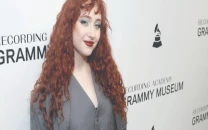

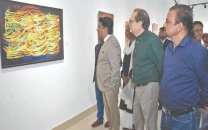

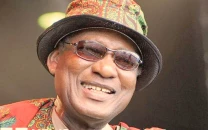
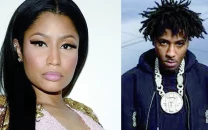












COMMENTS
Comments are moderated and generally will be posted if they are on-topic and not abusive.
For more information, please see our Comments FAQ